That's all from Holyrood Live......published at 18:46 GMT 25 January 2017
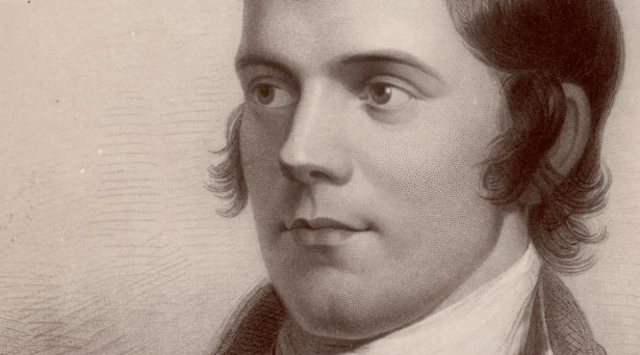
That brings our coverage of the Scottish Parliament, for Wednesday 25 January 2017, to an end.
We'll be back tomorrow.
Have a good night.
The Education Committee takes evidence from the Commission on Widening Access and the Fair Access commissioner
Health and sport ministers are in the hot seats for portfolio questions
Ministerial Statement: UK Supreme Court Judgement on Triggering of Article 50
Scottish Labour lead a debate on the draft budget and ask Parliament to reject it as it stands
SNP MSP Emma Harper leads a member's debate on celebrating Burns and the Scots language
Craig Hutchison and Colin Bell

That brings our coverage of the Scottish Parliament, for Wednesday 25 January 2017, to an end.
We'll be back tomorrow.
Have a good night.
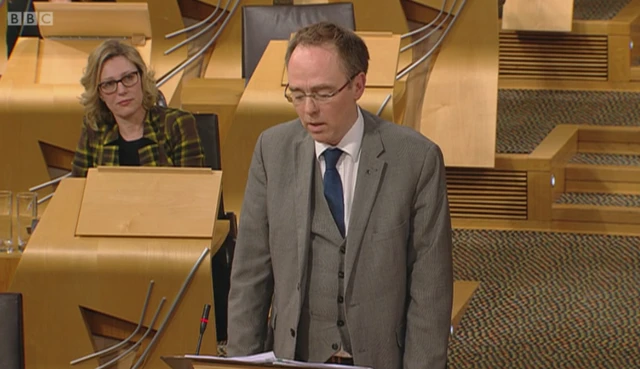
International Development Minister Alasdair Allan
International Development Minister Alasdair Allan says Burns speaks to the whole world.
The minister says both his grandfathers were ploughmen and therefore Burns speaks to him.
Mr Allan says Scots is at the hearts of our communities and literature.
Allow X content?
This article contains content provided by X. We ask for your permission before anything is loaded, as they may be using cookies and other technologies. You may want to read X’s cookie policy, external and privacy policy, external before accepting. To view this content choose ‘accept and continue’.
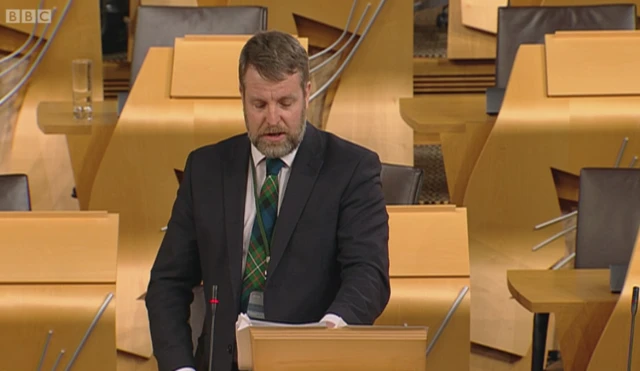
Tory MSP Finlay Carson
Tory MSP Finlay Carson says most of the parties could look at the work of Burns and claim him as one of their own.
Mr Carson says Burns could easily have written about greed and injustice but instead he spoke passionately about his fellow man.
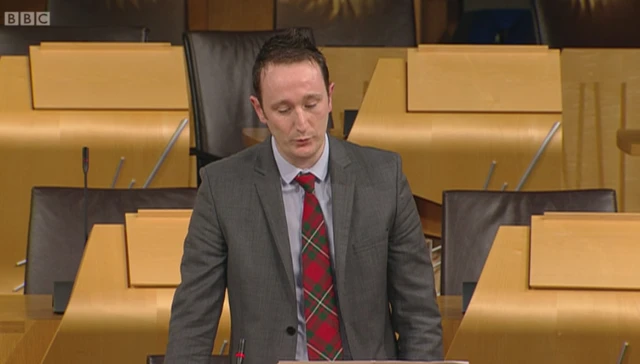
SNP MSP Fulton MacGregor
SNP MSP Fulton MacGregor says it is good that children learn about Scottish heritage and dialect.
Mr MacGregor says a lot of words that were integrated into his language by his teenage years turned out to be Scots which he wasn't aware of at that time.
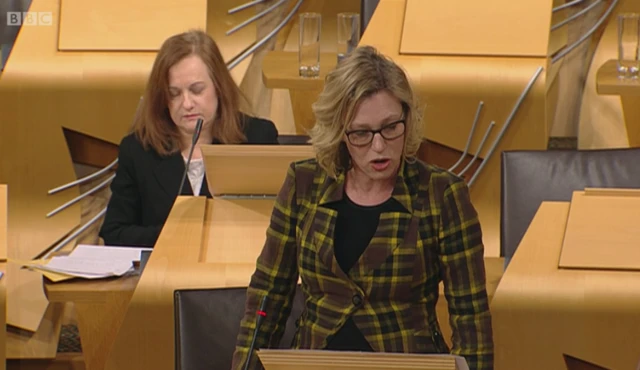
SNP MSP Gillian Martin says Scots and Doric is alive and well and it's no just about the 25 January.
Allow X content?
This article contains content provided by X. We ask for your permission before anything is loaded, as they may be using cookies and other technologies. You may want to read X’s cookie policy, external and privacy policy, external before accepting. To view this content choose ‘accept and continue’.
Allow X content?
This article contains content provided by X. We ask for your permission before anything is loaded, as they may be using cookies and other technologies. You may want to read X’s cookie policy, external and privacy policy, external before accepting. To view this content choose ‘accept and continue’.
Allow X content?
This article contains content provided by X. We ask for your permission before anything is loaded, as they may be using cookies and other technologies. You may want to read X’s cookie policy, external and privacy policy, external before accepting. To view this content choose ‘accept and continue’.
Allow X content?
This article contains content provided by X. We ask for your permission before anything is loaded, as they may be using cookies and other technologies. You may want to read X’s cookie policy, external and privacy policy, external before accepting. To view this content choose ‘accept and continue’.
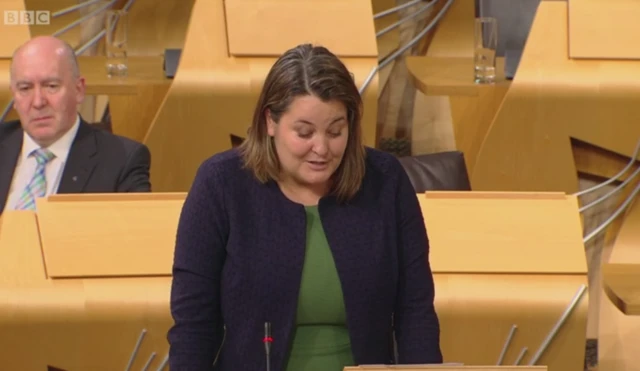
SNP MSP Ruth Maguire
SNP MSP Ruth Maguire says, as great a poet as Burns was, Scots language is for more than just Burns day.
Ms Maguire says there are misperceptions of the Gaelic language and she would like to see it promoted more.
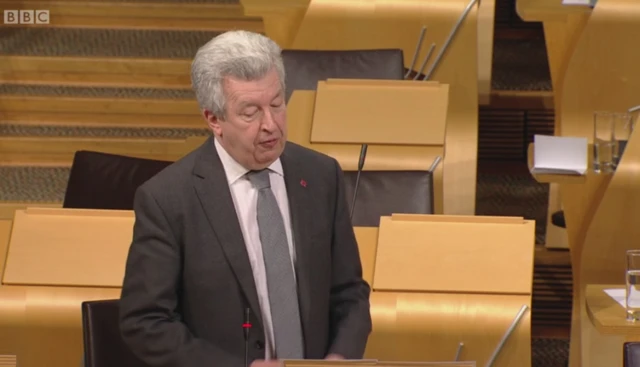
Labour MSP Lewis Macdonald says the Scots language is unique because of its roots in Gaelic.
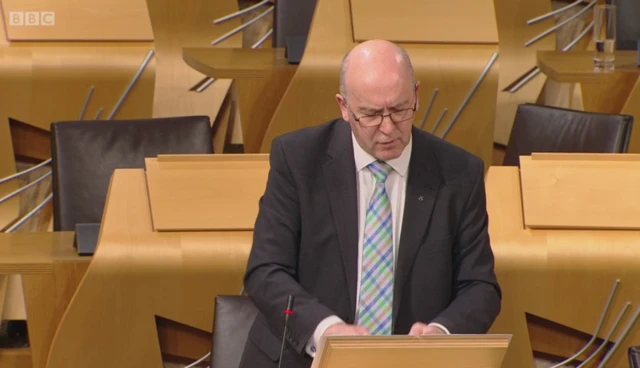
SNP MSP Willie Coffey
SNP MSP Willie Coffey says Burns gave credibility to the Scots language.
Mr Coffey says he ignored the pleas to write his works in the conventional English language.
The SNP MSP says the poems are not as powerful translated out of Scots.
He says Burns was clearly at home using the everyday language of his own people.
 Image source, bbc
Image source, bbcBurns was right on the money!
O wad some power
The givtie gie us,
To see oursel's
As others see us
Tory MSP John Scott recites Tam o' Shanter and says one of Burns greatest achievements was to promote the Scots language.
Mr Scott says this is still the living language of many lowland Scots to this day.
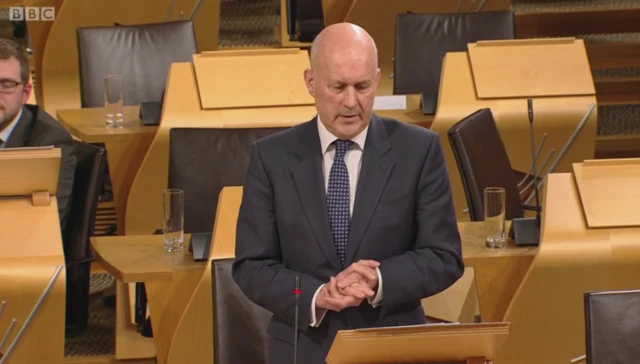
Tory MSP John Scott
The Tory MSP says Burns was unique which is why his work has been translated into a number of different languages across the world.
Mr Scott says Ken Macintosh is currently welcoming people from around the world to the presiding officer's Burns supper.
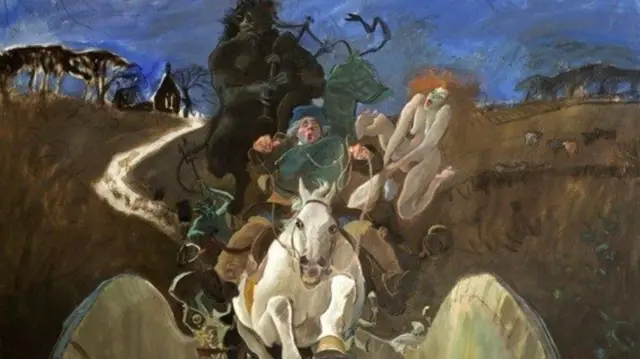 Image source, Image copyrightSOUTH AYRSHIRE COUNCIL
Image source, Image copyrightSOUTH AYRSHIRE COUNCILShe Flew at Tam wi’ Furious Ettle
From Tam 0' Shanter:
When chapmen billies leave the street,And drouthy neibors, neibors meet,As market days are wearing late,An' folk begin to tak the gate;While we sit bousing at the nappy,And getting fou and unco happy,We think na on the lang Scots miles,The mosses, waters, slaps, and styles,That lie between us and our hame,Where sits our sulky sullen dame.Gathering her brows like gathering storm,Nursing her wrath to keep it warm.
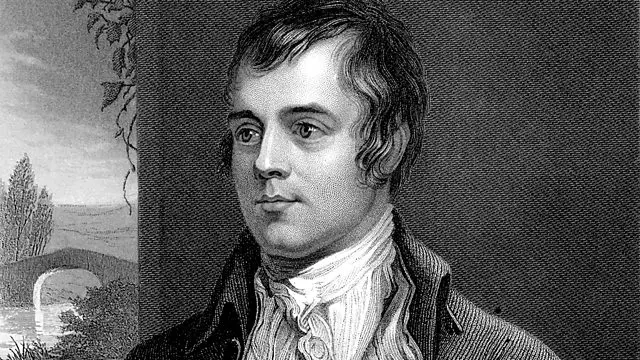 Image source, bbc
Image source, bbcMs Harper quotes Rabbie Burns:
Ye see yon birkie, ca'd a lord, Wha struts, an' stares, an' a' that; Tho' hundreds worship at his word, He's but a coof for a' that: For a' that, an' a' that, His ribband, star, an' a' that: The man o' independent mind
Ms Harper says Burns was the biggest inspiration for many including Bob Dillan.
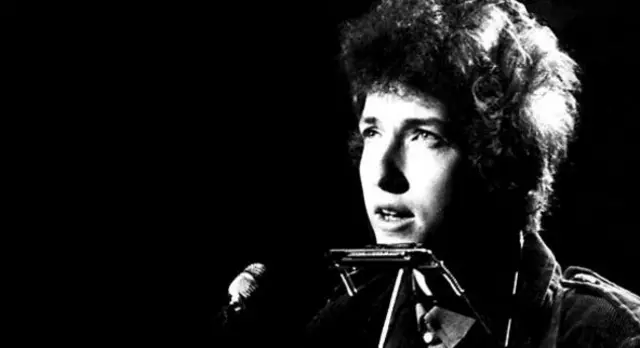 Image source, bbc
Image source, bbc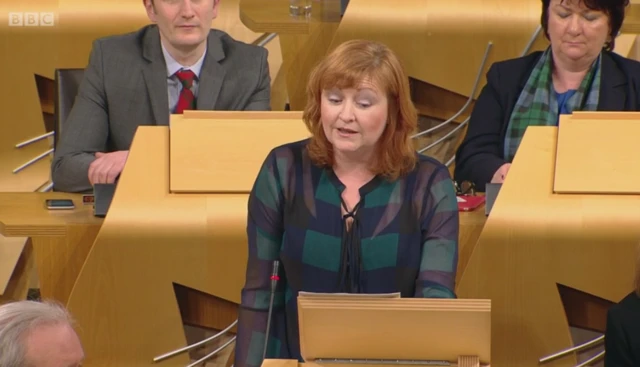
SNP MSP Emma Harper
SNP MSP Emma Harper says Burns was told to abandon his Scots and speak properly.
The SNP MSP says he would not change his poetry from the Scots language.
Ms Harper says Burns wrote about fairness and equality in many of his songs,
She says Scottish Parliament recognises Burns and his words have been embedded outside on the walls of the building.
Robert Burns was born on 25 January 1759, to tenant farmers, in the village of Alloway, two miles south of Ayr.
Hard physical labour on the family farm took its toll on the young Burns, who increasingly turned his attentions towards the passions of poetry, nature, drink and women.
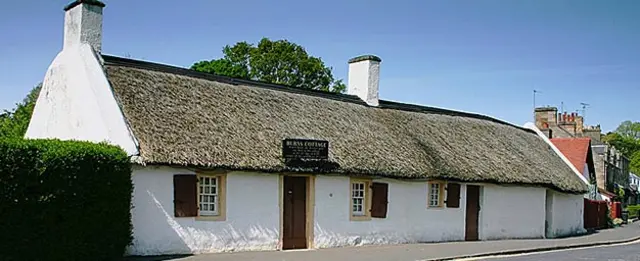
He fathered twins with eventual wife Jean Armour, but a rift in their relationship nearly led to Burns emigrating to the West Indies with lover Mary Campbell (his Highland Mary).
Mary's sudden death and the sensational success of his first published collection of verse kept him in Scotland.
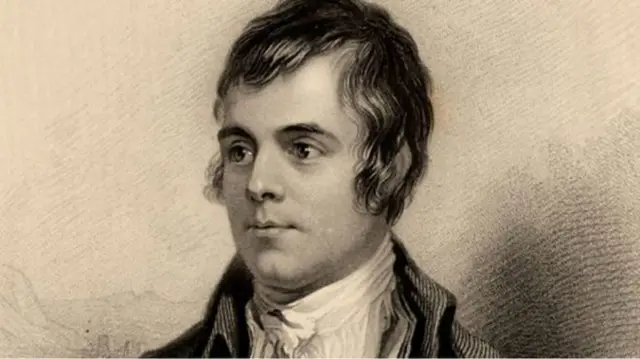
In his late 20s, Burns arrived in Edinburgh, where he was welcomed by a circle of wealthy and important friends.
Illicit relationships and fathering illegitimate children ran parallel to a productive period in his working life.
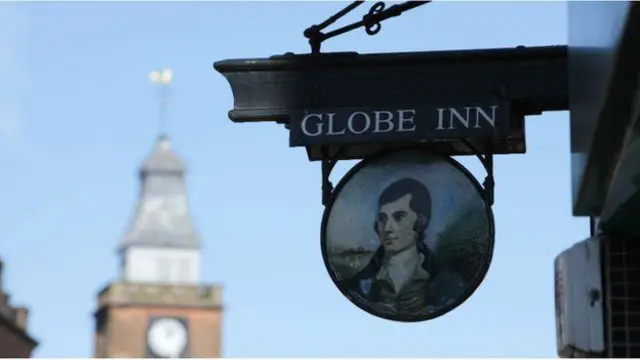
Burns was a regular visitor to the Globe Inn
In just 18 short months, Burns had spent most of the wealth from his published poetry, so in 1789 he began work as an Excise Officer in Dumfries and resumed his relationship with wife Jean.
He died on 21 July 1796 aged just 37 and was buried with full civil and military honours on the very day his son Maxwell was born.
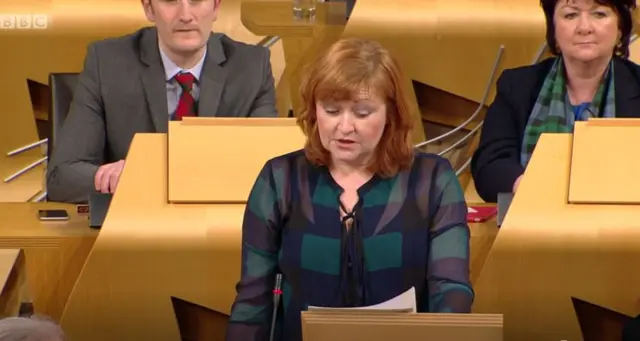 Image source, bbc
Image source, bbcSNP MSP Emma Harper
SNP MSP Emma Harper says today is Robert Burns's birthday which is the ideal day to celebrate the Scots language.
Ms Harper says she is the chair of the Dumfries Burns club.
She says her mither tongue was Scots when she was a lassie.
Ms Harper says she is rediscovering Scots words now.
SNP MSP Emma Harper has provided her motion in Scots.
 Image source, Scottish Parliament
Image source, Scottish ParliamentHere is SNP MSP Emma Harper's motion.
 Image source, Scottish Parliament
Image source, Scottish Parliament